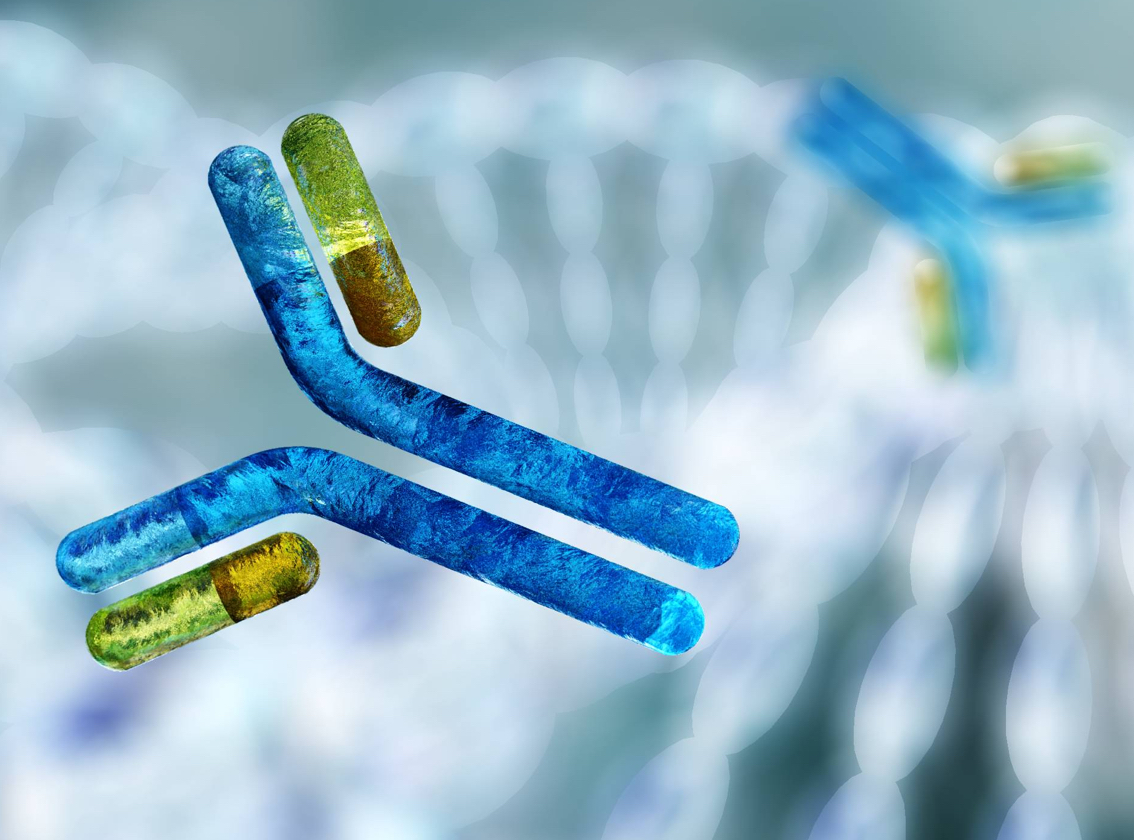



Click here to register for access to the full site.
This is only available for healthcare professionals treating patients with IDACIO®.
Biologic medicines have revolutionised the treatment of many chronic illnesses and life-threatening diseases.1 Biologics are defined as large complex molecular proteins developed or derived from living biological systems that utilise state-of-the-art recombinant biotechnology due to their unique nature.1
The table to the right summarises the differences between a conventional medicine (e.g. paracetamol.) and a biologic medicine (e.g. adalimumab).1-4

Biosimilar medicines are highly similar, but not identical versions of an already registered biological medicine (the reference biological medicine).5 Biosimilars are not the same as generic drugs.5 A generic drug is identical, or bioequivalent to a reference product in all aspects i.e. quality and performance characteristics since it is being built by chemical synthesis.5 A biosimilar is highly similar, though not identical to the reference product since it is produced in living cells.5 However, there are no clinically meaningful differences in term of efficacy or safety from the reference product.3,4
After several years pharmaceutical drug companies can develop and market biosimilars.3 Healthcare systems are increasingly keen to use biosimilars that have demonstrated equivalent clinical efficacy and similar safety profiles to the reference product.5 Biosimilar medicines are expected to deliver significant savings, which can be reinvested into other areas of the Australian health system and expand access to biological medicines as they become more affordable.3

Biosimilars undergo rigorous testing and must demonstrate that they are similar to the reference product through three different types of studies:6
Comparative quality studies: These in-vitro studies compare the protein structure and biological function between the biosimilar and the reference product
Comparative non-clinical studies: these include pharmacodynamic studies (generally in vitro) to compare the biosimilar and reference product. In-vivo toxicological studies are required in certain cases
Comparative clinical studies: Clinical trials are tailored to confirm biosimilarity and include studies focusing on toxicology, pharmacokinetics and phamacodynamics in healthy volunteers and in at least one sensitive indication of use for which the reference product is approved, followed by studies performed to demonstrate similar efficacy, safety and immunogenicity
The regulatory guidelines for approval of biosimilars allow for extrapolation of indications.3,6 This means that all the available data for the biosimilar and the reference product in one indication may be utilised to obtain approval for the use of the biosimilar in other indications of the reference product.3,6
Safety is a critical component of the approval of a new biosimilar, which has to demonstrate no clinically meaningful differences in immune response compared to the reference product. Immune responses may affect both the safety and effectiveness of the product. In some cases, a dedicated immunogenicity study may be necessary.
Biosimilar medicines are approved as highly similar to their reference product biologic, having no clinically meaningful differences. As a consequence, under the guidance of a physician and with careful monitoring, a patient can be switched from a reference product to a biosimilar medicine.
To access the full website content, click here.
This is only available for healthcare professionals treating patients with IDACIO®.
1. Abraham J. Semin Oncol 2013;40(Suppl1):S5-S24.
2. Kozlowski S et al. N Engl J Med 2011;365:385-388.
3. The Department of Health Biosimilar Awareness Initiative. Biosimilar medicines: the basics for health care professionals. Available at: https://www1.health.gov.au/internet/main/publishing.nsf/Content/biosimilar-awareness-initiative?Open=&utm_source=health.gov.au&utm_medium=redirect&utm_campaign=digital_transformation&utm_content=biosimilars [Accessed December 2020].
4. The Department of Health. What are biosimilar medicines? Available at: https://www1.health.gov.au/internet/main/publishing.nsf/Content/biosimilar-what-are-biosimilar-medicines [Accessed December 2020].
5. Sekhon BS e al. Biosimilars 2011;1:1-11.
6. Australian Government Department of Health. Therapeutic Goods Administration. Biosimilar medicines regulation. Version 2.2, April 2018.